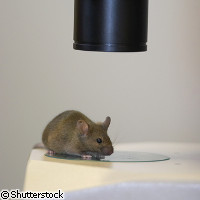New global deal to speed up hunt for animal testing alternatives
International efforts to reduce the number of animals used in experiments were given a boost on 27 April with the signing by four international agencies of a memorandum of cooperation. The signatories are the European Centre for the Validation of Alternative Methods (ECVAM), which is part of the Commission's Joint Research Centre, the US National Toxicology Program (NTP) Interagency Center for the Evaluation of Alternative Toxicological Methods (NICEATM), Canada's Environmental Health Science and Research Bureau and the Japanese Center for the Validation of Alternative Methods (JaCVAM). The organisations already work closely together, but this new agreement aims to formalise and strengthen joint activities. The signatories hope that by working together, they will be able to speed up the development and validation of alternative testing methods that reduce the number of animals used in research. By collaborating more closely, the organisations also hope to accelerate the acceptance of new methods by regulatory bodies - both in the countries and regions involved and abroad. Specifically, the agreement should result in improvements in the design and conduct of validation studies and greater use of high-quality, transparent scientific peer reviews of alternative test methods. It should also lead to a greater likelihood of harmonised recommendations on the usefulness and limitations of alternative test methods for regulatory testing purposes, more efficient use of limited resources, and a more rapid adoption of alternative methods by regulatory bodies. 'Reducing animal testing, both out of concern for animal welfare and ethical issues, and protecting consumer safety are two major objectives of this international agreement,' commented the EU's Science and Research Commissioner, Janez Potocnik. 'I expect that European, American, Japanese and Canadian scientists working together will more rapidly identify scientifically sound alternative testing methods.' Dr Joachim Kreysa, the recently appointed head of ECVAM, added: 'I am enthusiastic about the agreement. Our collaboration will help to identify and embrace scientifically sound and robust new testing approaches, ensuring that safety assessments are never compromised, while at the same time [it will] reduce the need for animal testing.' 'Signing this international agreement demonstrates our commitment to finding and advancing alternatives to animal testing,' said Dr Linda Birnbaum, Director of the NTP and National Institute of Environmental Health Sciences, part of the US' National Institutes of Health. 'This agreement will help us achieve greater efficiency by avoiding duplication of effort and allowing us to leverage limited resources.' In the EU alone, some 12 million animals are used in safety testing and other biomedical experiments every year. The EU created ECVAM in 1992 with the aim of validating scientific tests that could replace animal tests with tests on cell tissues or computer models, and reduce the number of animals used in experiments or refine tests so as to lessen the amount of pain and distress experienced by the animals involved.
Countries
Canada, Japan, United States



